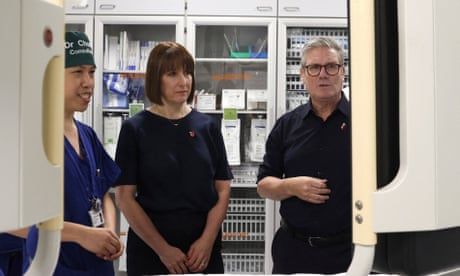
Live, rolling coverage of business, economics and financial markets as investors weigh implications of Rachel Reeves’s budget
The UK manufacturing industry fell into contraction in October as companies paused investments ahead of the budget, according to the closely followed purchasing managers’ index (PMI).
The final reading for British manufacturing dropped to 49.9 points in October, according to S&P Global, below the 50 index level that marks a contraction. The initial “flash” reading had been 50.3.
UK manufacturing started the final quarter of the year on an uncertain footing amid speculation on government policies ahead of the Budget, which was widely reported to have led to a wait-and-see approach on investment and spending.
This domestic headwind, combined with an ongoing loss of export business, led to the first outright contraction in new work intakes since April. Output growth came close to stalling as a result.
The front-loading of spending will mechanically boost growth in the short term, but it’s too early to tell how much this will add to potential output in the long term. On the positive side, investments in infrastructure and planning reforms should create a more business-friendly environment; an improved health service should help bring people back to work as current inactivity remains mainly linked to people who are off sick; and education and childcare investments should improve workers’ skills in the long term. Nonetheless, reaping those potential benefits will also depend on whether the spending is deployed in an effective way.
A hypothetical scenario in which public spending is permanently higher but the quality and accessibility of public services still doesn’t improve enough, could further complicate policy trade-offs in the future. Conversely, a faster improvement in public services could yield greater dividends in terms of lower future pressures and positive growth repercussions.
Continue reading...